What Are GOOD Veggies for Dogs?
As a dog owner, you’ve probably wondered what types of vegetables are safe and beneficial for your furry friend. It’s essential to be knowledgeable about the veggies that can provide them with essential nutrients without causing harm. In this article, we’ll explore some of the best vegetables for dogs to support their health and well-being.
Just like humans, dogs can benefit from a diet that includes a variety of vegetables as they are rich in vitamins, minerals, and fiber. Some of the top choices for dogs include carrots, green beans, peas, and cucumber, which provide valuable nutrients and can also help to maintain their dental health.
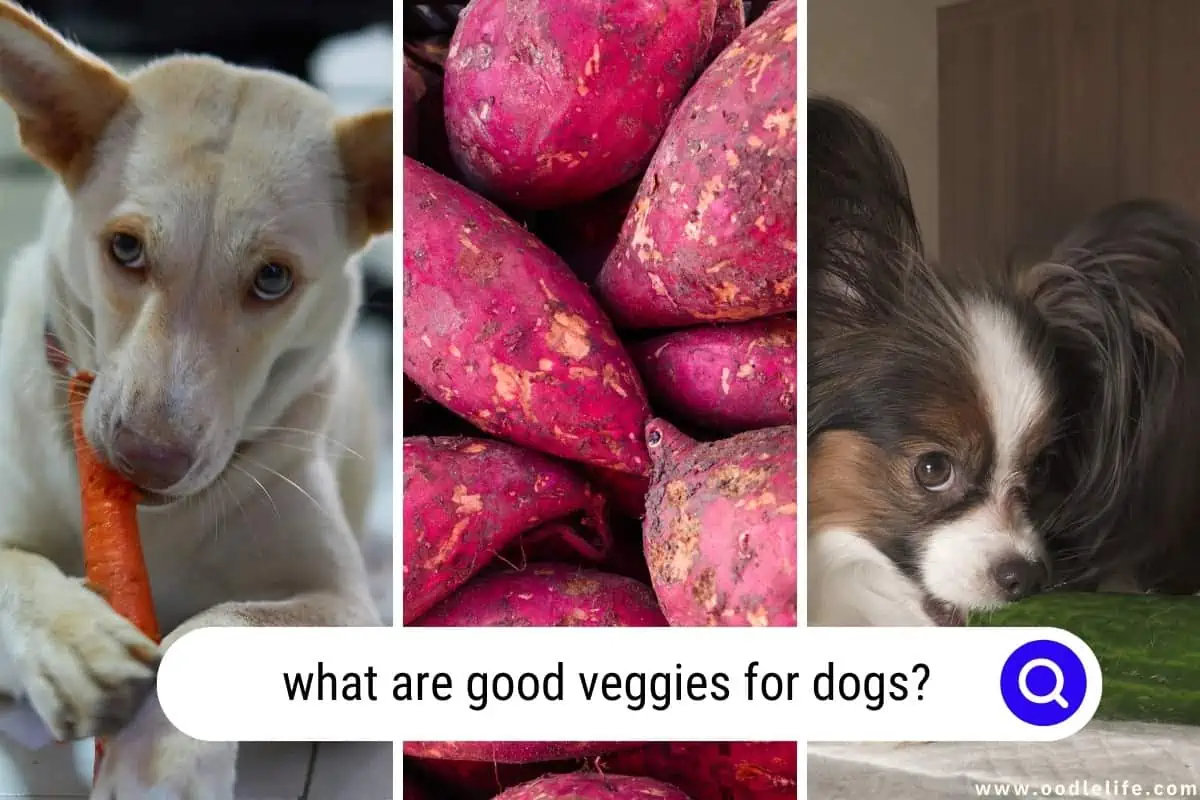
However, not all vegetables are created equal when it comes to our canine companions, so it’s essential to do your research and consult with your veterinarian to determine the best options for your pup. In the following sections, we’ll discuss why certain vegetables are particularly beneficial for dogs and delve into the safe ways to prepare them as a treat or a supplement to their regular diet.
Why Feed Dogs Vegetables?
As loving pet owners, we often wonder what’s best for our furry friends’ diets. Vegetables for dogs can be a healthy addition to their meals, and here’s why.
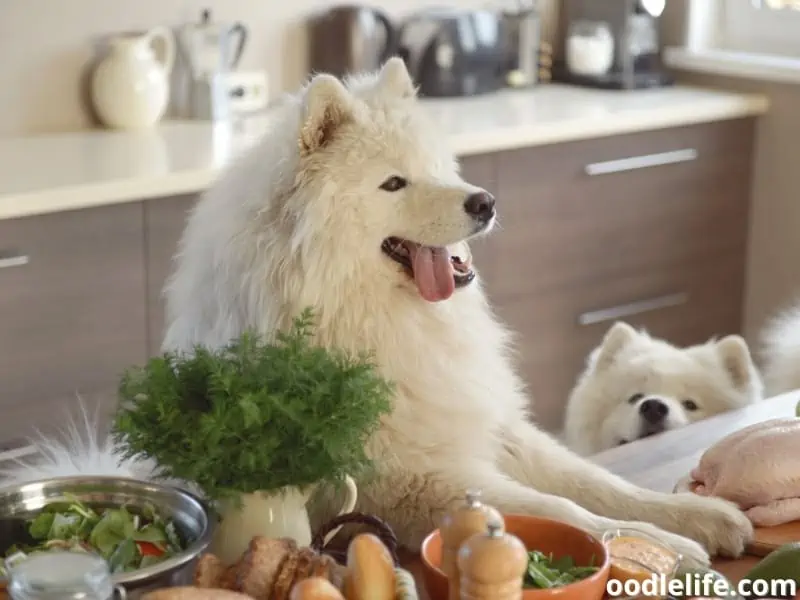
First, vegetables are natural sources of essential nutrients. They offer vitamins, minerals, and dietary fiber that help keep dogs healthy and their digestive systems running smoothly. For instance, carrots provide dogs with vitamins A and K, calcium, and potassium, essential for muscle, nerve, and kidney health.
Secondly, veggies are relatively low in calories. When trying to help your dog maintain a healthy weight, incorporating low-calorie snacks like cauliflower or lettuce can be beneficial. These options can be particularly useful for dogs on homemade dog food diets, as they allow for better portion control.
Now, hydration is vital not only for us humans but also for our pets. Interestingly, many vegetables, like cucumbers and lettuce, have high water content. Feeding your dog these watery veggies helps them stay hydrated and supports overall organ functions.
Another bonus point for the veggies: variety! Introducing different vegetables into your dog’s diet keeps things interesting for their palate and their health. Just like us, dogs can benefit from eating a mix of veggies, such as kale and romaine lettuce, that offer diverse nutrients for optimum health.
And finally, because sharing is caring, right? Preparing homemade dog food can become enjoyable bonding time when you and your dog can share ingredients and a love for nutritious meals. Just make sure to keep a close eye on Fido, so he doesn’t sneak off with the whole carrot!
Of course, always consult your veterinarian before making significant changes to your dog’s diet or introducing new vegetables. And remember, moderation is key – too much of a good thing can still lead to tummy troubles.
Best Vegetables for Dogs
Carrots
Carrots are an excellent source of vitamin A and offer a satisfying crunch that dogs love. Not only do they promote good vision, but they also help maintain a healthy coat and immune system. Try freezing carrots as a cool snack for Fido on a hot day!
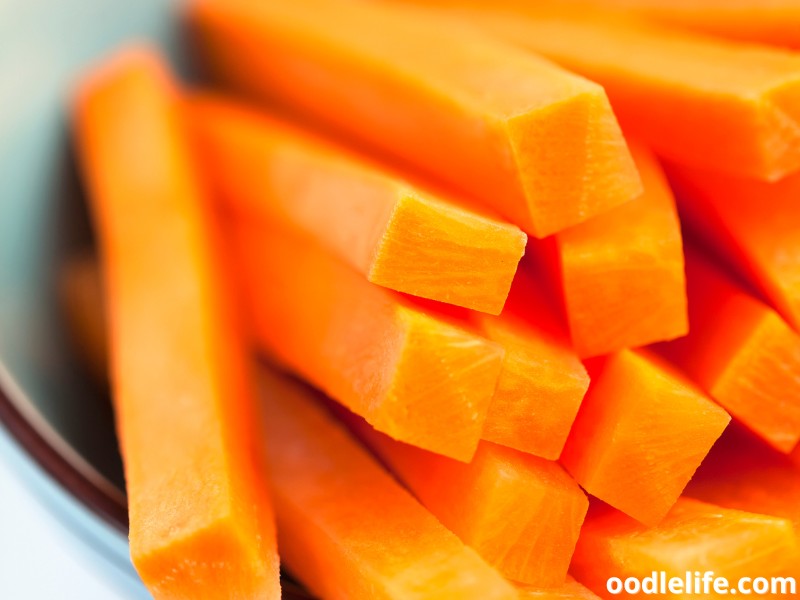
Green Beans
Dogs can benefit immensely from green beans, which are packed with fiber, omega-3 fatty acids, and vitamins A, C, and K. This green powerhouse turns any meal into a balanced feast for your four-legged friend. A bonus for you: their gentle crunch is music to any dog parent’s ears.
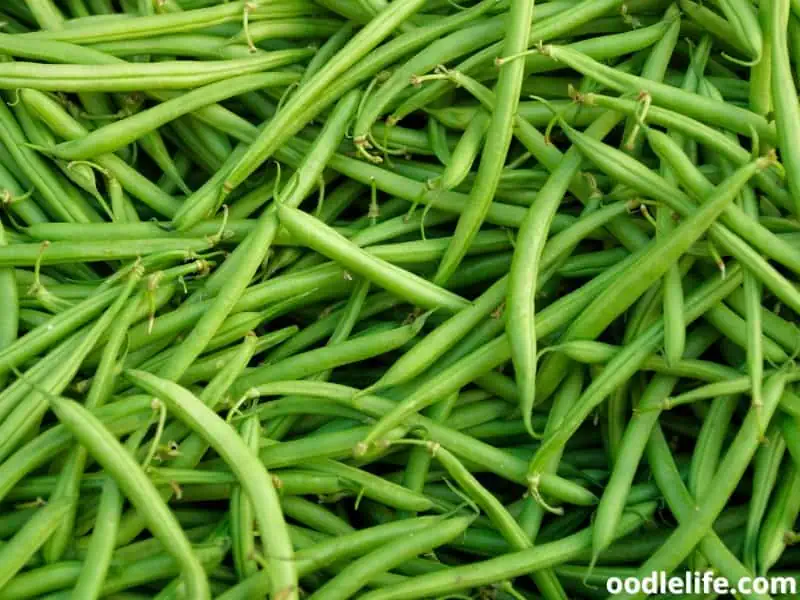
Sweet Potato
Sweet potatoes are perfect for dogs with a sweet tooth. Rich in vitamins A, B6, and C, they also provide a healthy dose of fiber, calcium, and iron. Dogs won’t even realize they’re eating something this healthy – they’ll be too busy munching away!
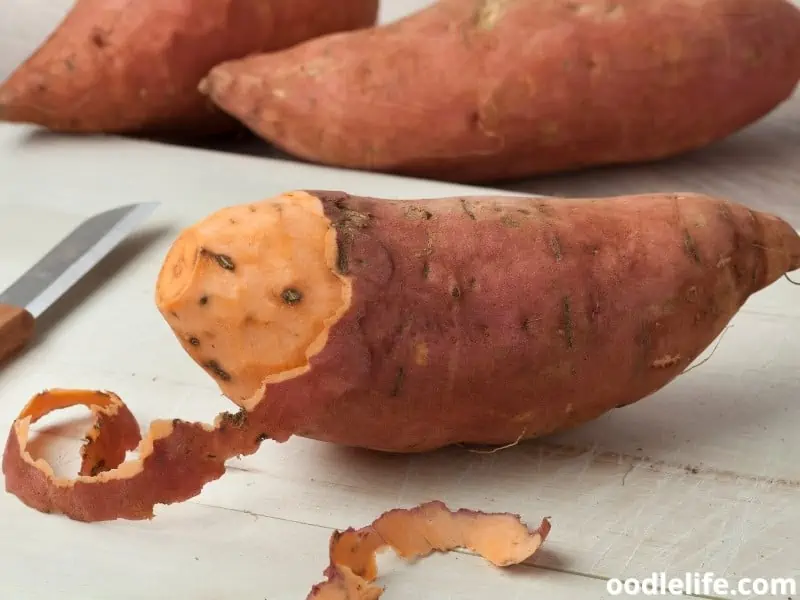
Broccoli
Did someone say “tiny trees?” Broccoli, full of vitamins K and C, makes for a nutritious, bite-sized snack for your canine companion. But be careful not to overfeed – no one wants a gassy pup!
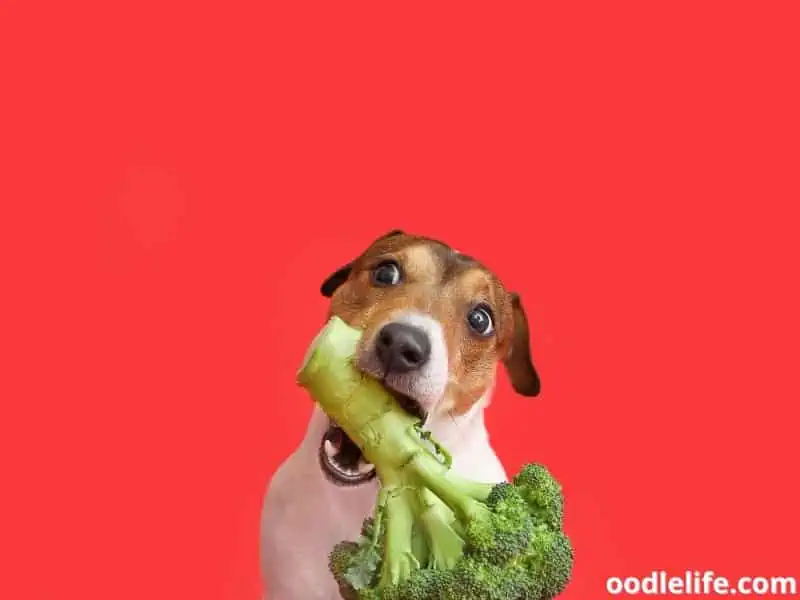
Celery
Celery is another low-calorie snack option for dogs. Packed with vitamins A, C, and K, and providing a good dose of fiber, your furry friend will thank you for helping keep their doggy digestive system in check. Plus, celery can help freshen your dog’s breath!
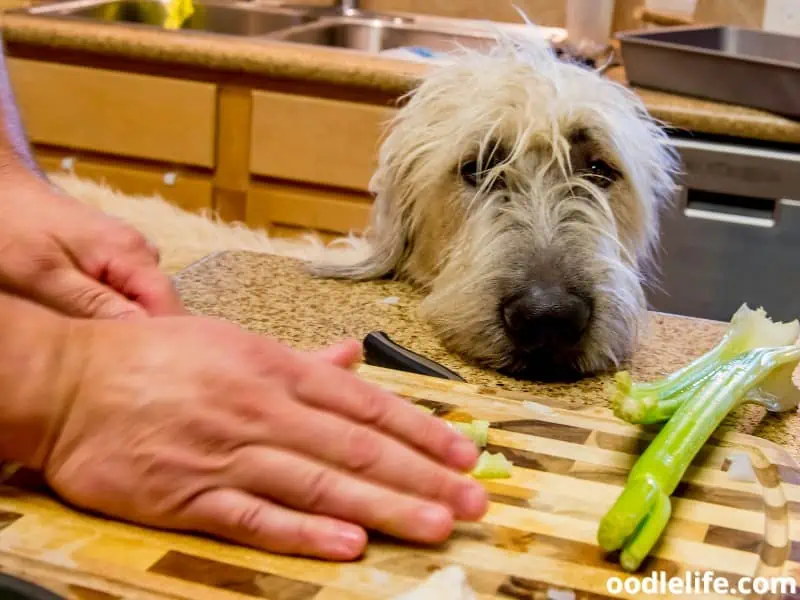
Peas
Peas provide protein, fiber, and a variety of vitamins and minerals. They’re like tiny vegetable nuggets of goodness! Mix them into your dog’s food for a well-rounded meal, or slip them a few as a wholesome treat.
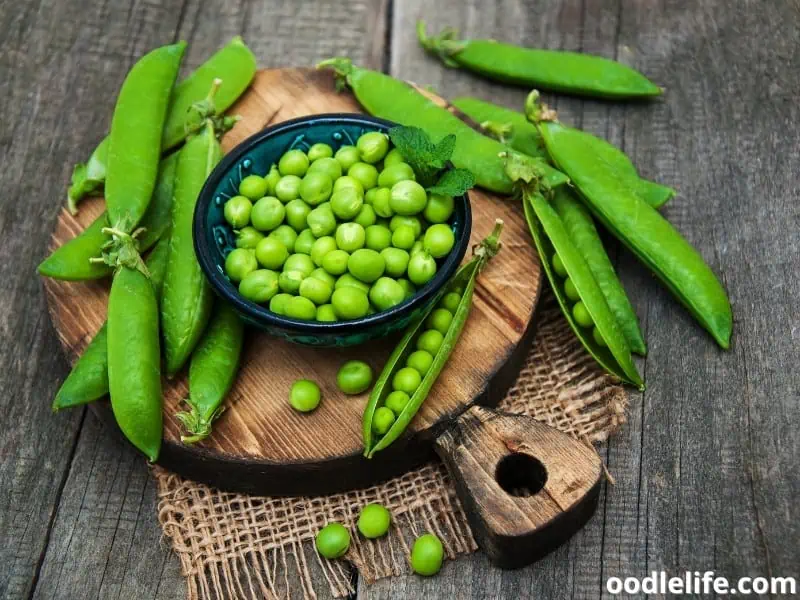
Cauliflower
Cauliflower’s not only great for humans, but also for our doggy pals. Chock-full of vitamins and minerals, it’s another fantastic option for a nutritious treat. Just remember to keep portions small – too much of this cruciferous veggie can cause some canine tummy troubles.

Brussels Sprouts
Brussels sprouts are like cute little cabbages for your dog. Full of vitamins and antioxidants, they can help support immune system health. Keep these treats in moderation, though – too many might cause some “emissions” we’d all rather avoid!
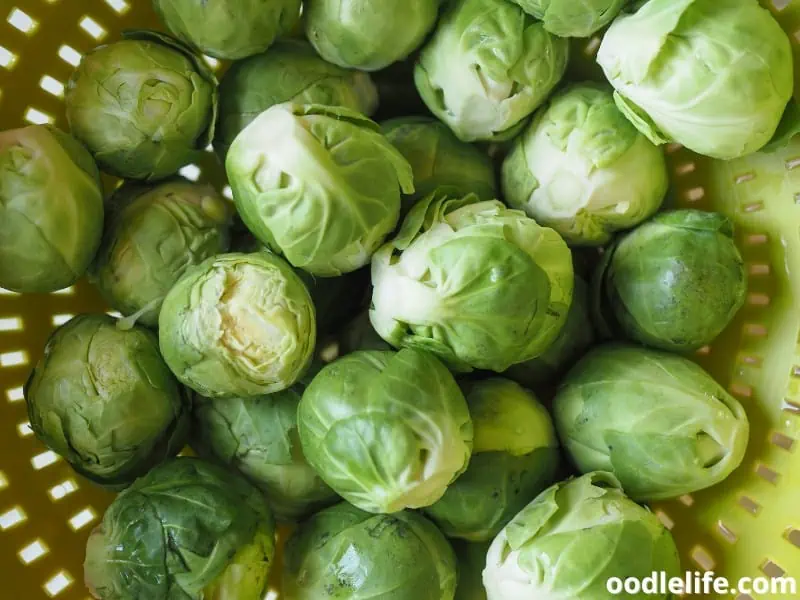
Cucumber
Last, but not least, cucumbers provide a light and hydrating snack for your furry friend. Low in calories but rich in water content, they’re perfect for those dogs watching their waistlines. Just remember to remove the seeds before treating your pup with this refreshing snack.
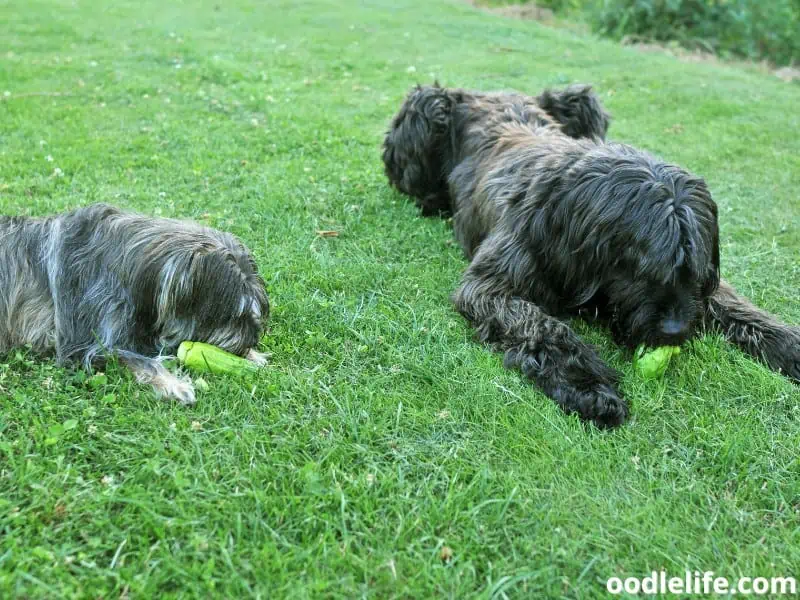
Dog-Friendly Vegetables with Health Benefits
Who says dogs can’t enjoy the green life? It’s time for Fido to join in on the veggie fun! Here’s a list of dog-friendly vegetables that pack a nutritional punch and taste good too.
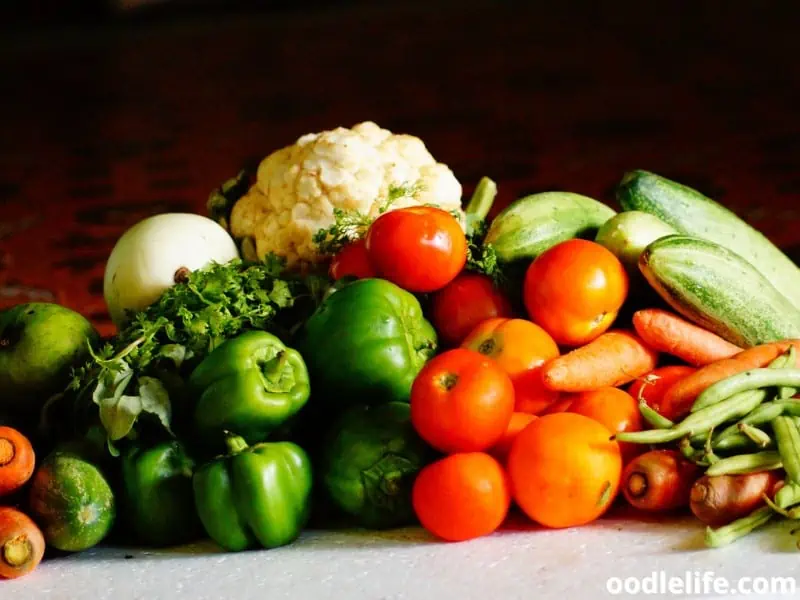
Keep in mind, moderation and proper preparation is key.
Carrots: These crunchy orange treats are a fan favorite among pups. They’re rich in vitamin A, which promotes healthy vision, skin, and immune system. Besides, they also double as a good alternative for chew toys!
Green Beans: Low in calories, high in vitamins, and an excellent source of fiber, green beans are a fantastic choice for your dog. You might even start a canine conga line once they get a taste of these fresh, vibrant veggies.
Peas: Please peas your pup with these tiny green globes! Peas are an excellent source of vitamins A, B, and K, as well as minerals like iron, magnesium, potassium, and zinc. Just be sure not to over-PEA-s your dog, as large amounts may cause digestive issues.
Cauliflower: This underrated veggie brings more to the (doggy) table than you’d think! With fiber, Vitamin C, potassium, calcium, and folate, cauliflower helps support various body functions and keeps your fur buddy feeling like a superhero.
Spinach: Break out the leafy greens and let your pooch channel their inner Popeye! Spinach is loaded with essential vitamins, minerals, and antioxidants. However, be cautious with the serving size, as too much spinach may interfere with your dog’s calcium absorption.
Broccoli: This miniature tree-looking veggie is an excellent source of vitamins, minerals, and antioxidants. Just beware of overstepping the broccoli boundary, as excessive amounts can lead to upset tummies.
Always remember to wash and prepare these vegetables properly, cutting them into bite-sized pieces for your dog’s safety. With this guide, you’ll be able to integrate dog-friendly vegetables into your furry friend’s diet and keep them wagging their tails for more!